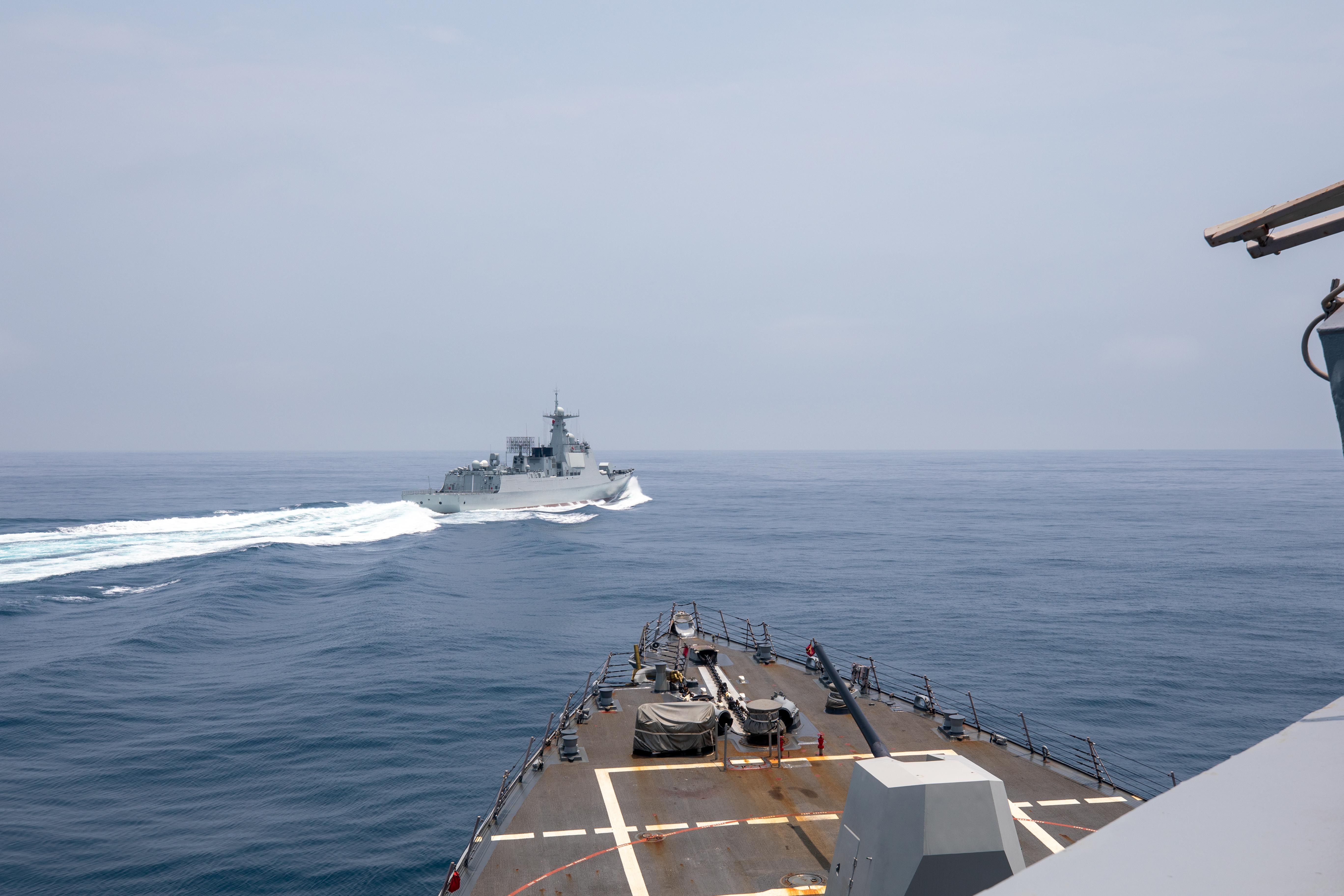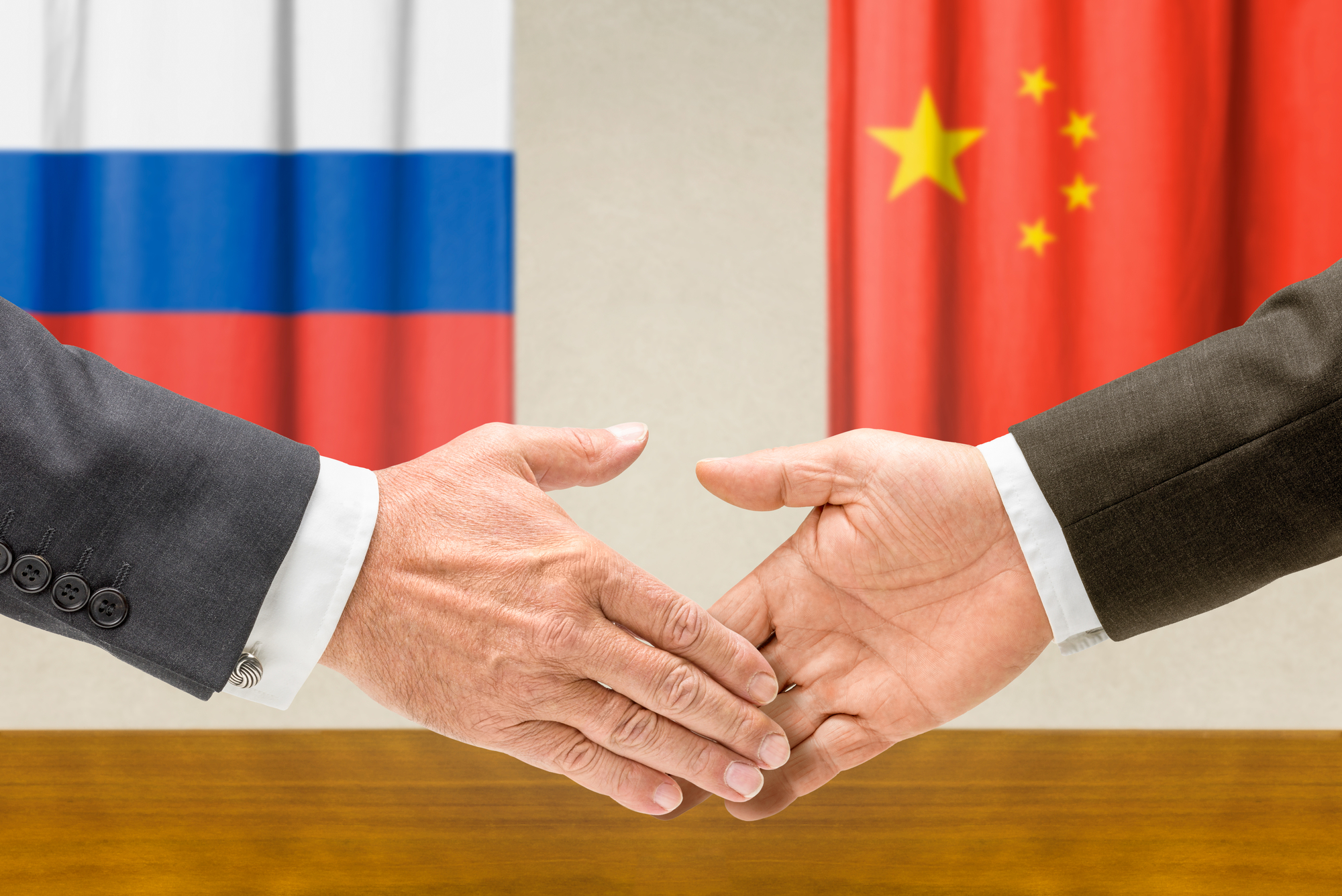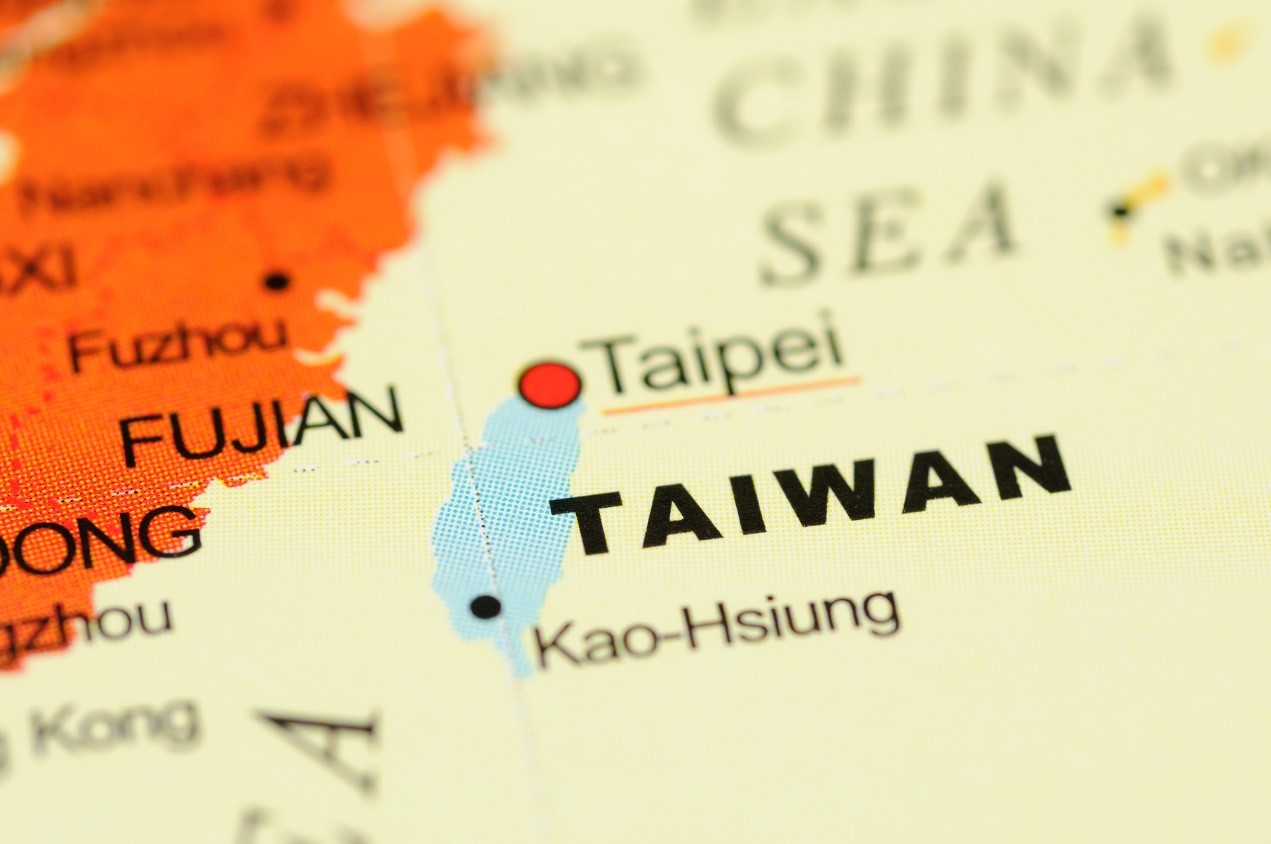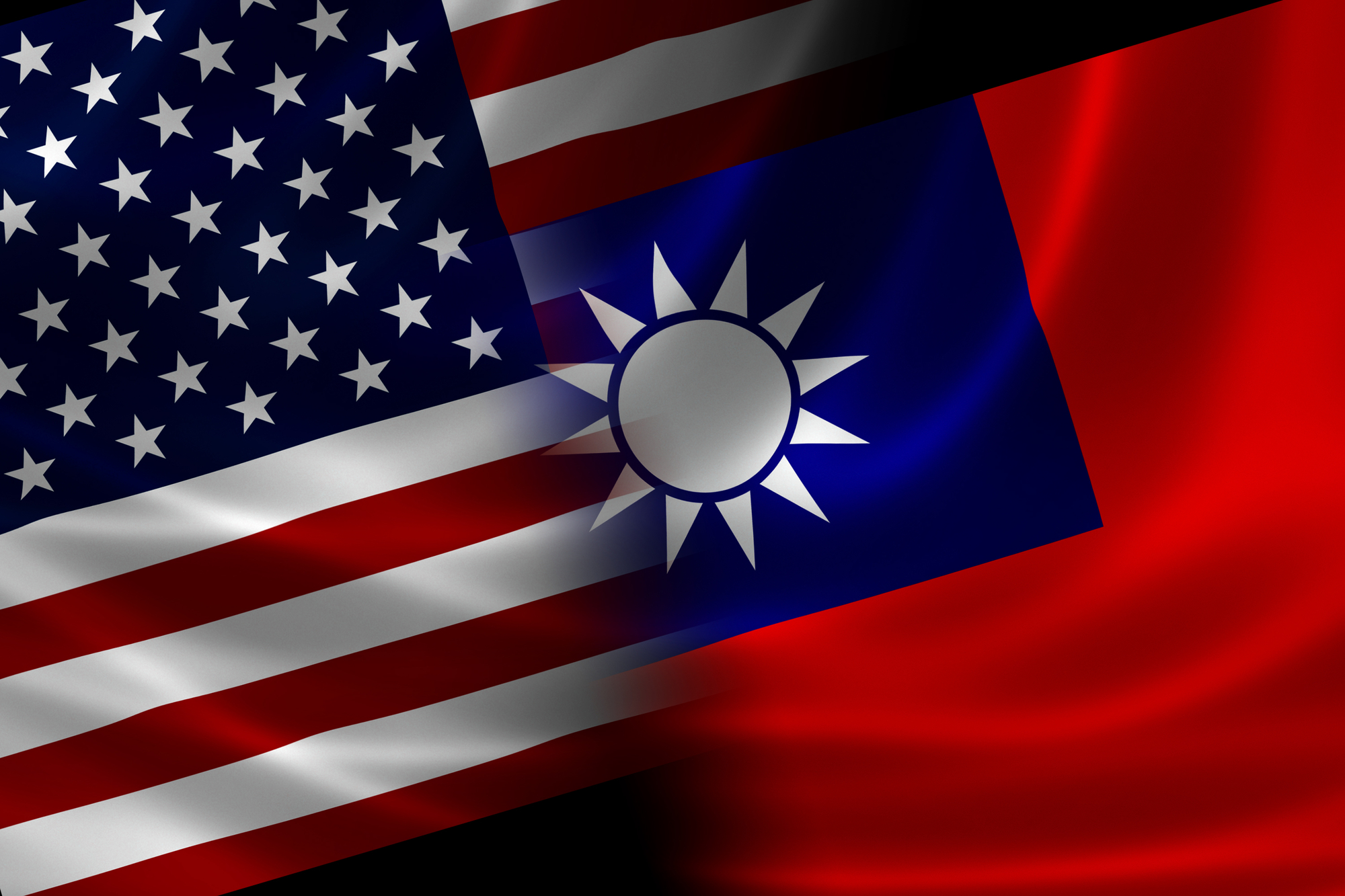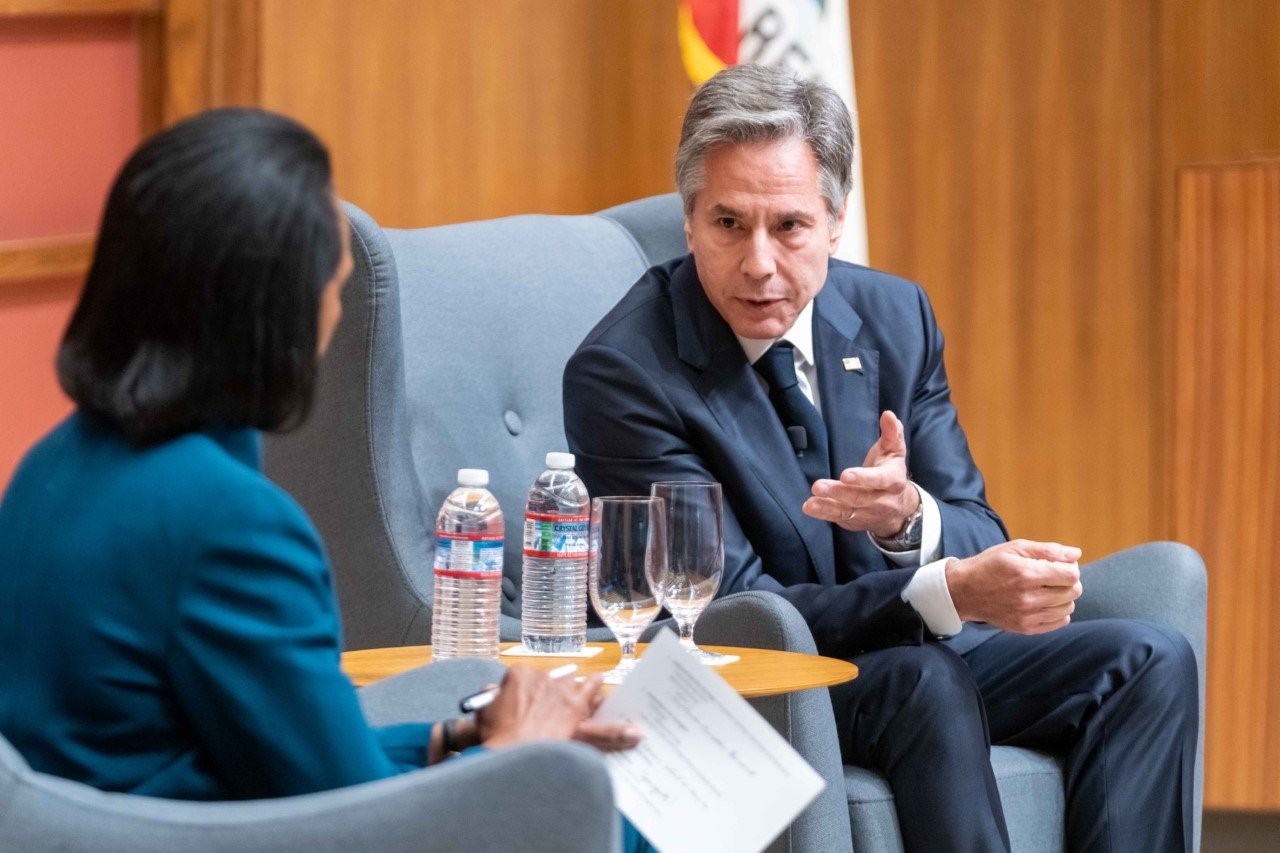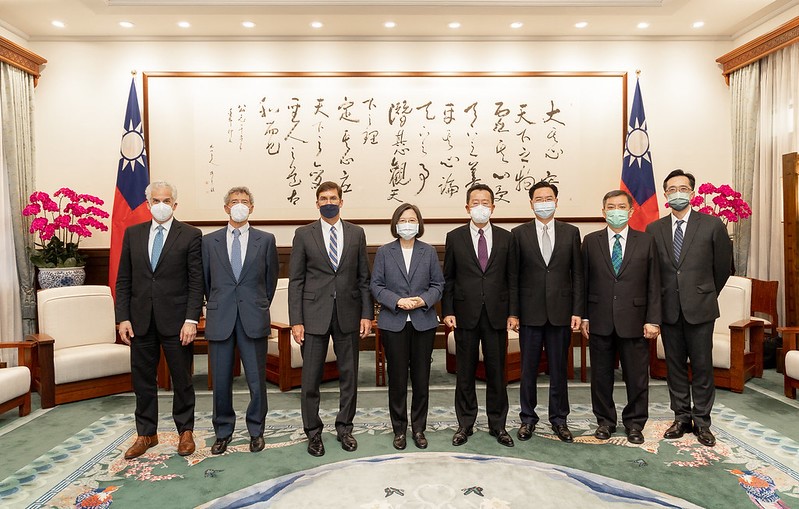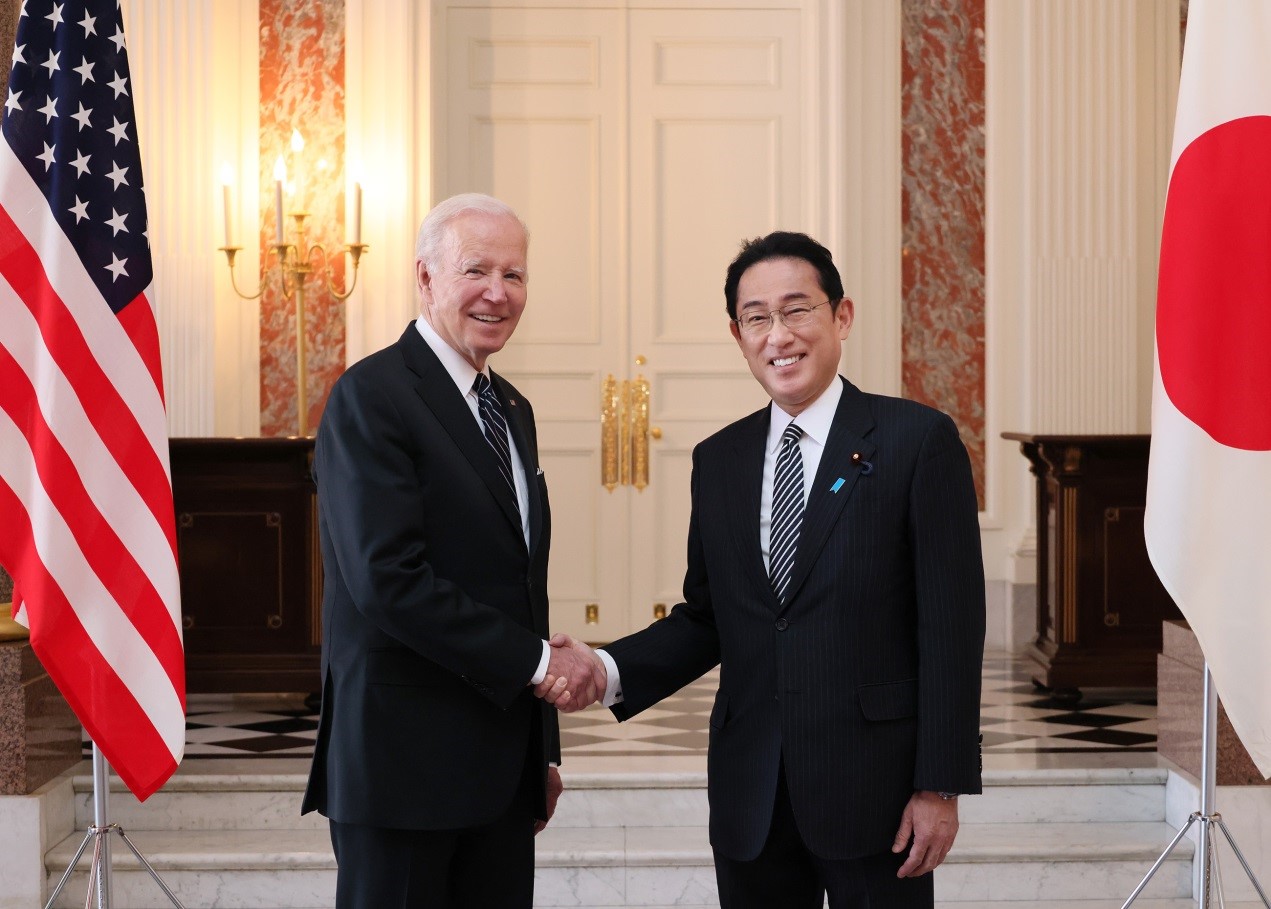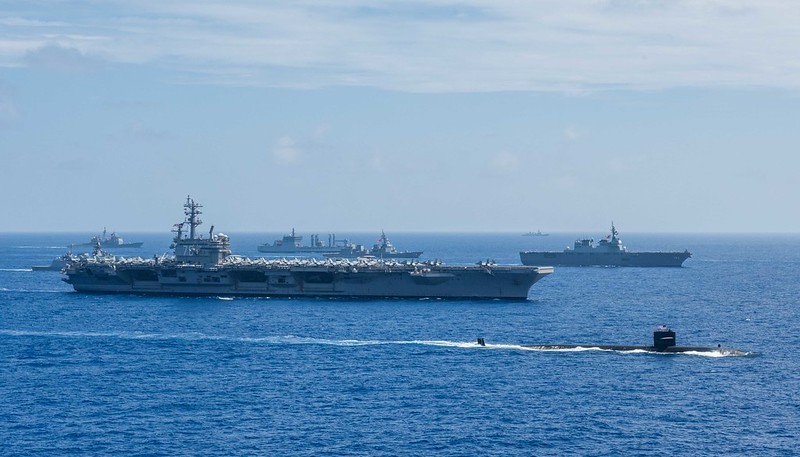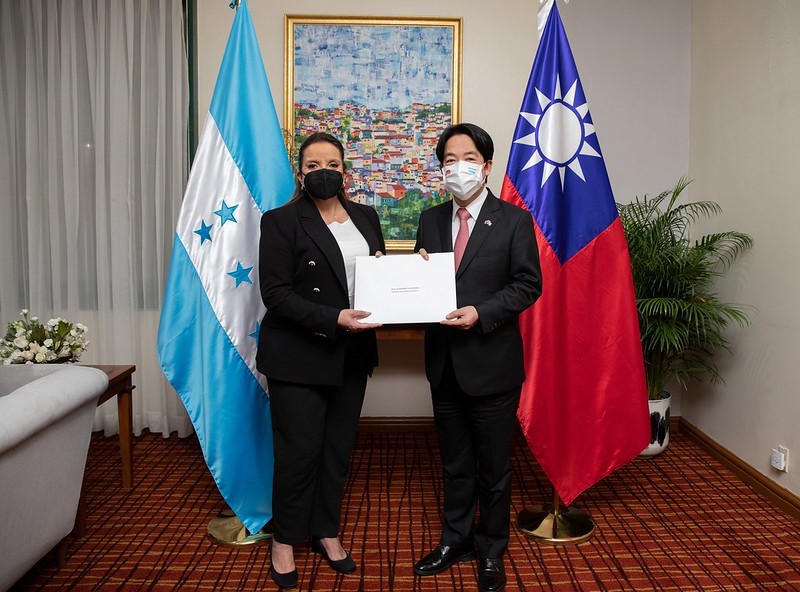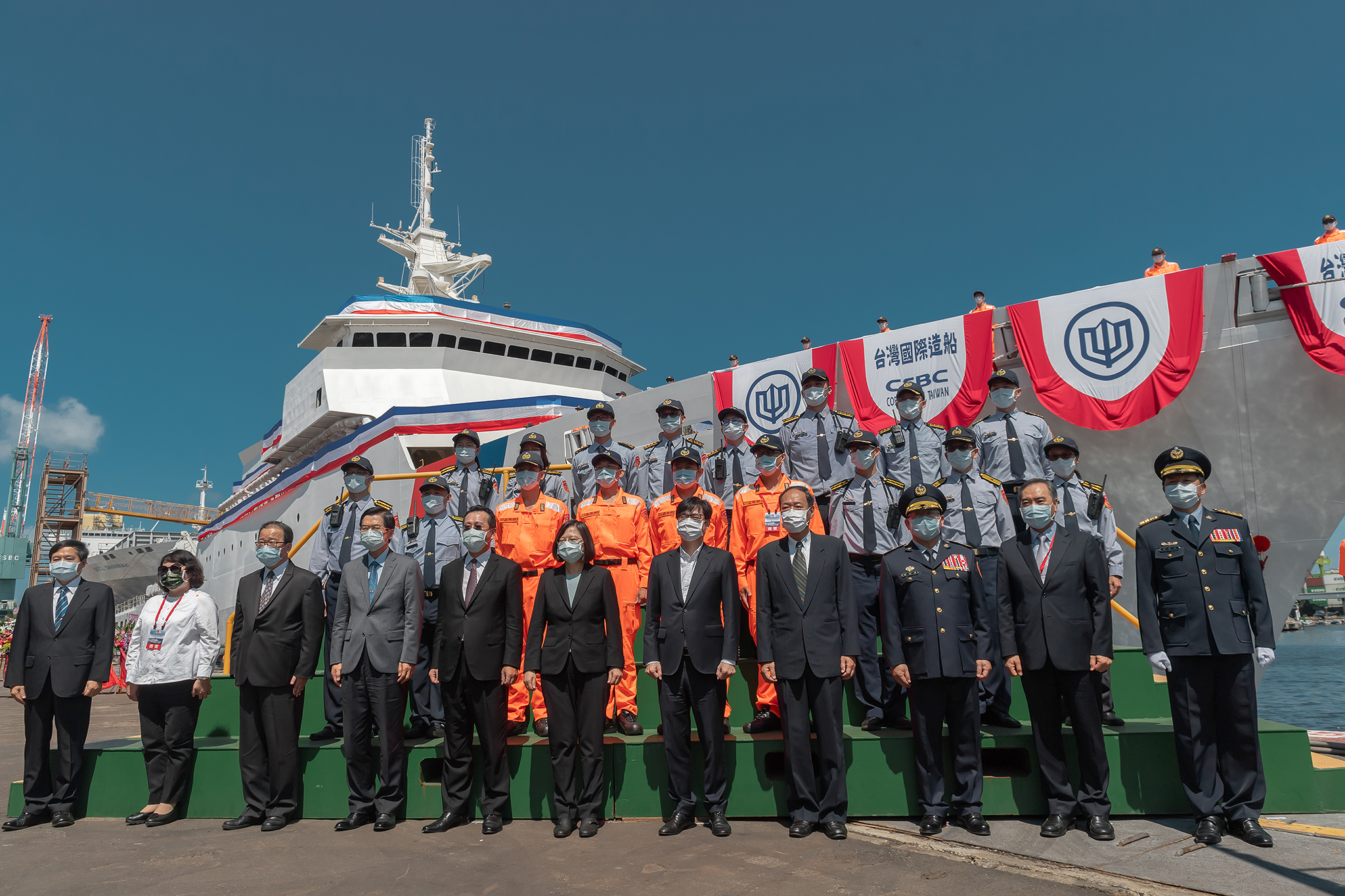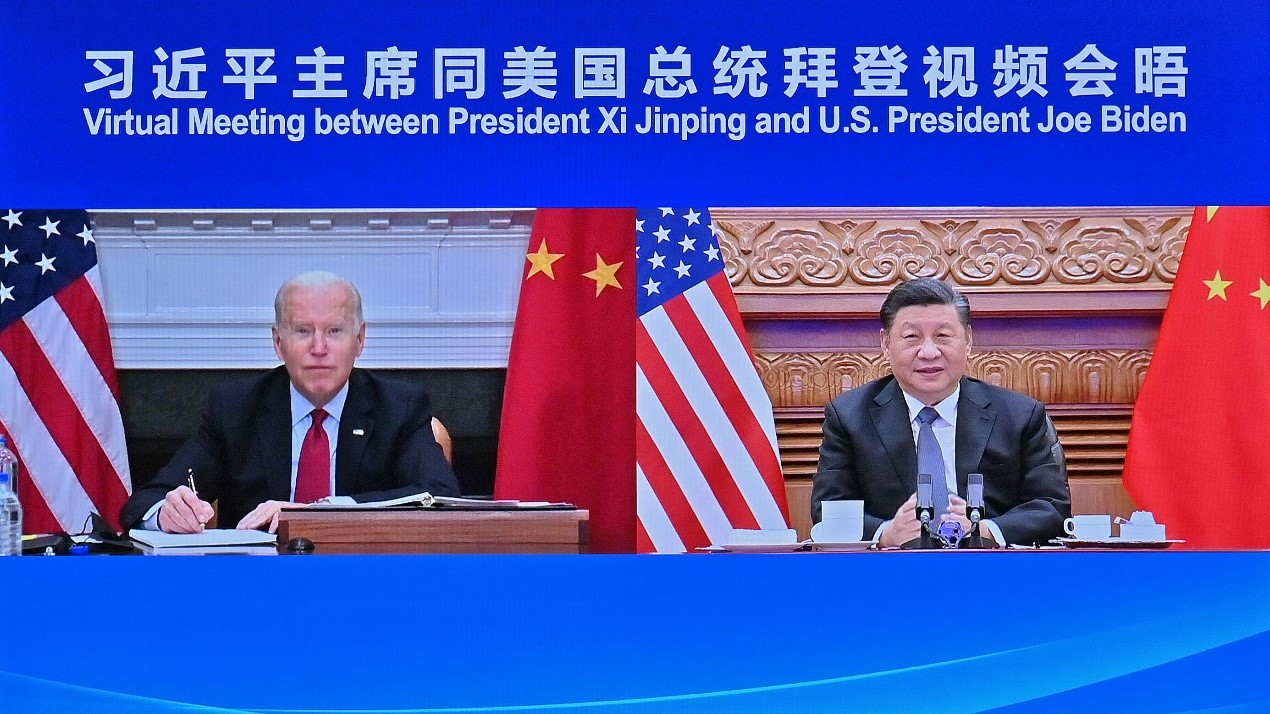Washington Needs Strategic Clarity and Resolve to Deter Chinese Aggression Against Taiwan
As China’s timeline to attack Taiwan seems to be narrowing, the U.S.’ commitment to defend Taiwan needs official clarity and resolve. The West failed to deter Russia’s aggression against Ukraine, and it must therefore deter China’s against Taiwan.
Picture source: U.S. Navy, June 5, 2023, U.S. Navy Office of Information, https://www.navy.mil/Press-Office/News-Stories/Article/3416530/usindopacom-statement-on-unsafe-maritime-interaction/.
Washington Needs Strategic Clarity and Resolve to Deter Chinese Aggression Against Taiwan
Prospects & Perspectives No. 33
By Joseph Bosco
As China’s timeline to attack Taiwan seems to be narrowing, the U.S.’ commitment to defend Taiwan needs official clarity and resolve. The West failed to deter Russia’s aggression against Ukraine, and it must therefore deter China’s against Taiwan.
U.S. Secretary of Defense Lloyd Austin, Secretary of State Antony Blinken, Indo-Pacific Commander John Aquilino, and other Biden Administration officials have recently been assuring the U.S. and the world that war between China and the United States “is neither inevitable nor imminent.”
Previous administrations have offered the same assurance, but it has been coming more often and more insistently in this administration, raising the question of whether officials are protesting too much or whistling in the dark. Does the almost-plaintive repetition reveal a deep-seated concern that actual conflict — most probably over Taiwan — may be closer than earlier thought?
Trying to decipher Beijing’s intentions, U.S. Navy officials and outside experts keep narrowing the window for a potential Chinese attack on Taiwan, starting from 2049, the 100th anniversary of the Chinese Communist Party’s (CCP) victory in the Chinese civil war. Former Indo-Pacific Commander Phil Davidson told the Senate Armed Services Committee in March 2021:
“I worry that they’re accelerating their ambitions to supplant the United States and our leadership role in the rules-based international order, which they’ve long said that they want to do by 2050. I’m worried about them moving that target closer. Taiwan is clearly one of their ambitions before then. And I think the threat is manifest during this decade, in fact in the next six years.”
A few weeks later Davidson’s successor, Admiral John Aquilino, suggested the timeline for a Chinese attack on Taiwan is not even that far away. “My opinion is this problem is much closer to us than most think.”
In the two years since those remarks by the successive Indo-Pacific Commanders, two Speakers of the House of Representatives — Democrat Nancy Pelosi and Republican Kevin McCarthy — have met directly with Taiwan’s President Tsai Ing-wen, infuriating Beijing which then dramatically escalated its already intense military pressure against Taiwan.
Then, in February 2022, Vladimir Putin stepped up his own aggression against the rules-based international order by renewing and expanding Russia’s 12-year invasion of Ukraine, with the blessing of his “no-limits strategic partner,” Xi Jinping. China has since supported Putin’s war effort by greatly increasing its purchases of Russian oil and providing both dual-use technology and parts for Russian military equipment. It has also supported Putin diplomatically by blaming the United States and NATO for provoking Russia’s invasion.
Despite Russia’s incompetence and failures in Ukraine, Putin and Xi are betting on a failure of Western will that will benefit both Russia in Ukraine and China on Taiwan. They are counting on the U.S. running short of missiles and ammunition because of the longstanding deterioration of U.S. and NATO weapons stockpiles and production capacity, while Iran and North Korea increase their supply of drones, missiles, and other offensive weapons systems to Russia.
In Congressional testimony last month, Under Secretary of Defense William LaPlante addressed the need to enhance U.S. industrial production capacity which has diminished the flow of weapons to meet the needs of Ukraine, Taiwan, and the U.S.’s own defense requirements. “We’re in the middle of a pivot, and that’s very exciting to see.”
U.S. catch-up efforts may also be motivating for Beijing, which sees its optimum opportunity to act about to be diminished, and may well determine that it needs to move sooner rather than later. It also has a strong incentive to do so while President Biden is still in office and Vice President Kamala Harris is waiting in the wings.
That is not only because of the grievous damage to American credibility caused by Biden’s calamitous pullout from Afghanistan. It also arguably reflects Biden’s and NATO’s failure to deter the invasion of Ukraine which Biden’s administration knew was coming. Instead of instilling fear in Putin that he would face direct Western intervention, Biden deterred not Putin but himself with his apocalyptic talk of a U.S.-Russia confrontation leading to “World War III.” Xi will certainly play that card to deter U.S. intervention when he decides to make his move on Taiwan.
The bottom line is that war between China and the U.S. is now more likely than at any time in the history of Sino-U.S. relations since the Korean War. At that time, China joined North Korea’s aggression against South Korea and the U.S.-led United Nations force and lost a million soldiers in the failed effort at forced re-unification.
Unification of China and Taiwan is the current flashpoint that could erupt into a China-U.S. conflict if Beijing tries once again to extend Asian Communism to a neighboring country against the will of the targeted people. Though President Biden’s China policy director, Kurt Campbell, once equated today’s One Korea peaceful re-unification movement with Beijing’s One China unification campaign, U.S. policy actually favors the former over the latter.
The tensions over Taiwan and the Afghanistan debacle apparently have prompted U.S. policy-makers to update their contingency plans for an evacuation of the 70,000 Americans presently living on Taiwan. The operational review may have been precipitated by the escalating incidents involving Chinese harassment of American ships and planes operating in international waters and airspace in the vicinity of China and Taiwan.
Earlier this month, People’s Liberation Army (PLA) Navy guided-missile destroyer CNS Suzhou closely trailed the USS Chung-Hoon of the same class as it made what the U.S. Navy termed a “routine” transit through the Taiwan Strait. The Navy stated the Chinese warship then “executed maneuvers in an unsafe manner” by suddenly cutting across the U.S. vessel’s bow within 150 yards, forcing it to slow to 10 knots to avoid a collision. The Navy criticized the Chinese ship’s “unprofessional” actions in “violating the maritime ‘Rules of the Road’ of safe passage in international waters.”
Such PLA interference occurs on an almost regular basis and extends well beyond the Taiwan Strait. On the first day of the Russia-China Joint Sea 2022 drills in the East China Sea last December, a Chinese jet flew within 20 feet of a U.S. reconnaissance plane, nearly causing a midair collision. Aquilino cited that incident when he addressed the National Committee on U.S.-China relations and condemned “an increasing number of dangerous and escalatory actions against the U.S. and our allies and partners.” There have been several other incidents of nautical harassment and aerial adventurism in the South China Sea, with another accident or miscalculation waiting to happen.
A senior U.S. defense official said there has been an “alarming increase in the number of risky aerial intercepts and confrontations at sea” by Chinese aircraft and ships — actions that “have the potential to create an unsafe incident or miscalculation.”
It did in 2001 when a fast Chinese fighter jet collided with a slow-moving, unarmed U.S. reconnaissance EP-3, killing the Chinese pilot and causing the U.S. plane to make an emergency landing on China’s Hainan island. To prevent a deliberate or accidental replay of the incident, the U.S. should consider sending fighter escorts to ensure the safety of its reconnaissance missions which are carried out in international airspace in accordance with international law.
At the same time, Washington should send an occasional carrier battle group through the Taiwan Strait. That would help dispel Beijing’s doubts about America’s commitment to Taiwan’s democratic security. Those doubts about the U.S. commitment are engendered by its decades-old policy of strategic ambiguity on directly defending Taiwan beyond sending it weapons to defend itself. The scenario for that model is happening now in the Russia-Ukraine theater of the global struggle between democracy and authoritarianism.
(Joseph Bosco is on the advisory board of the Global Taiwan Institute.)


